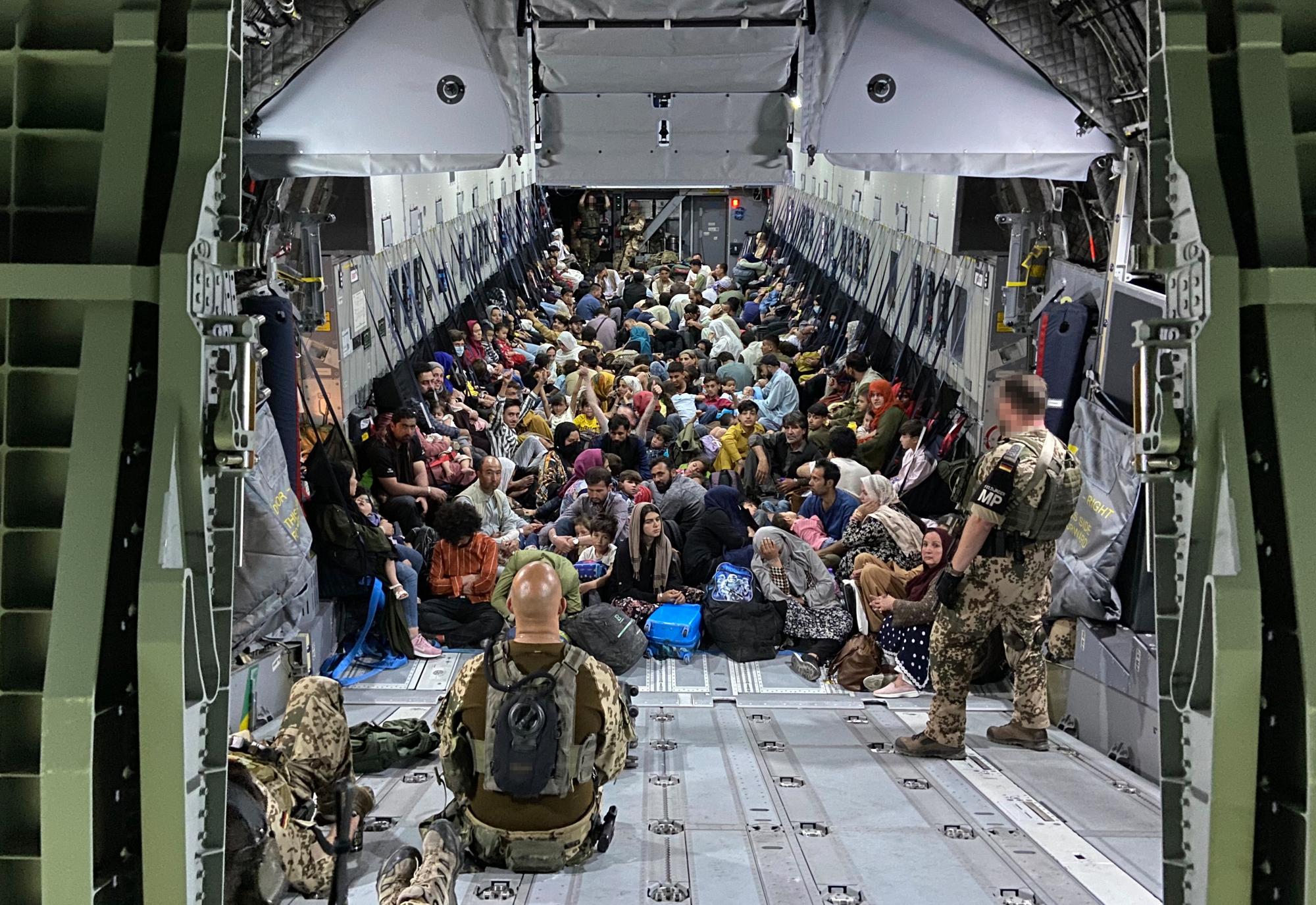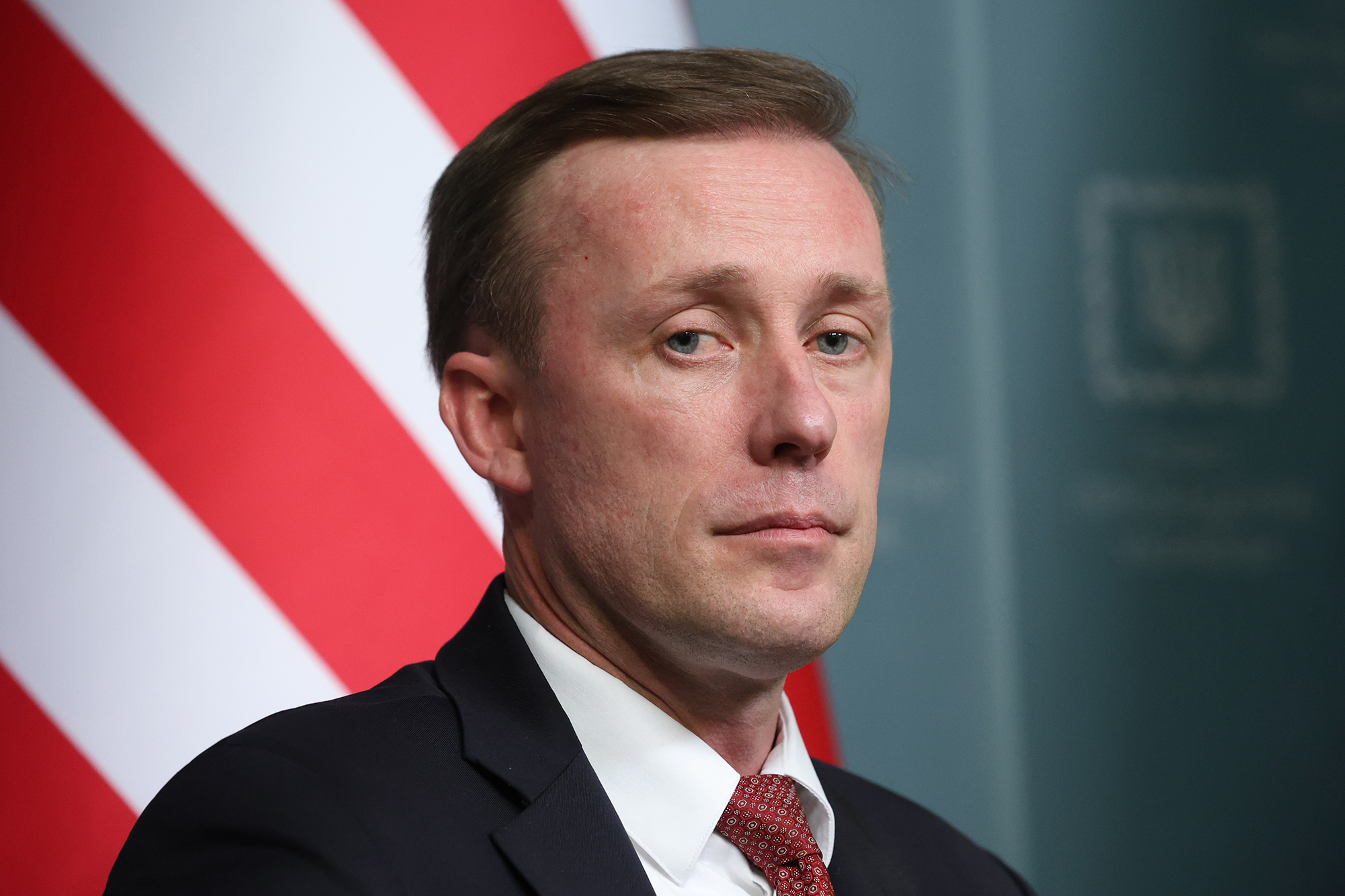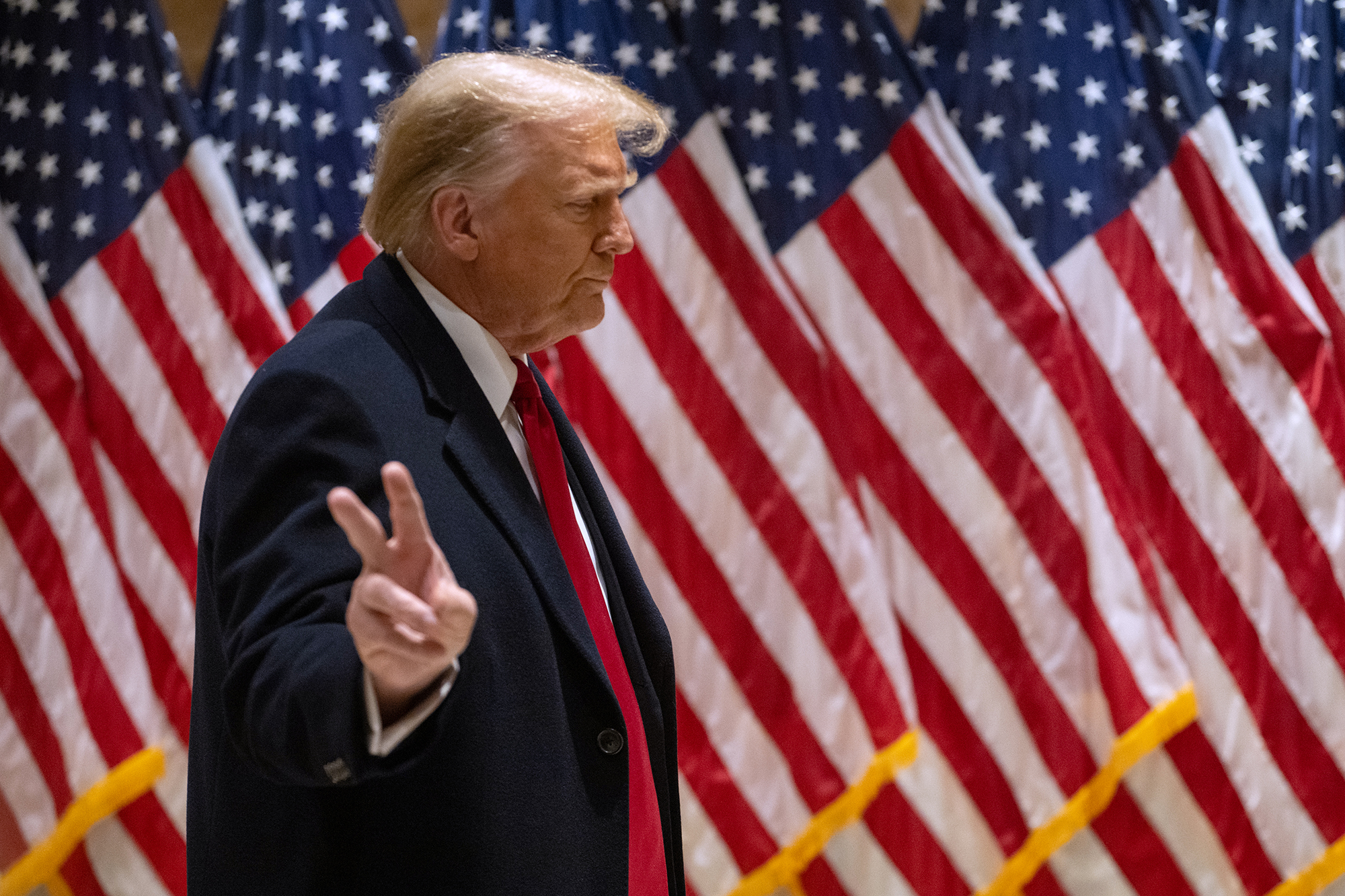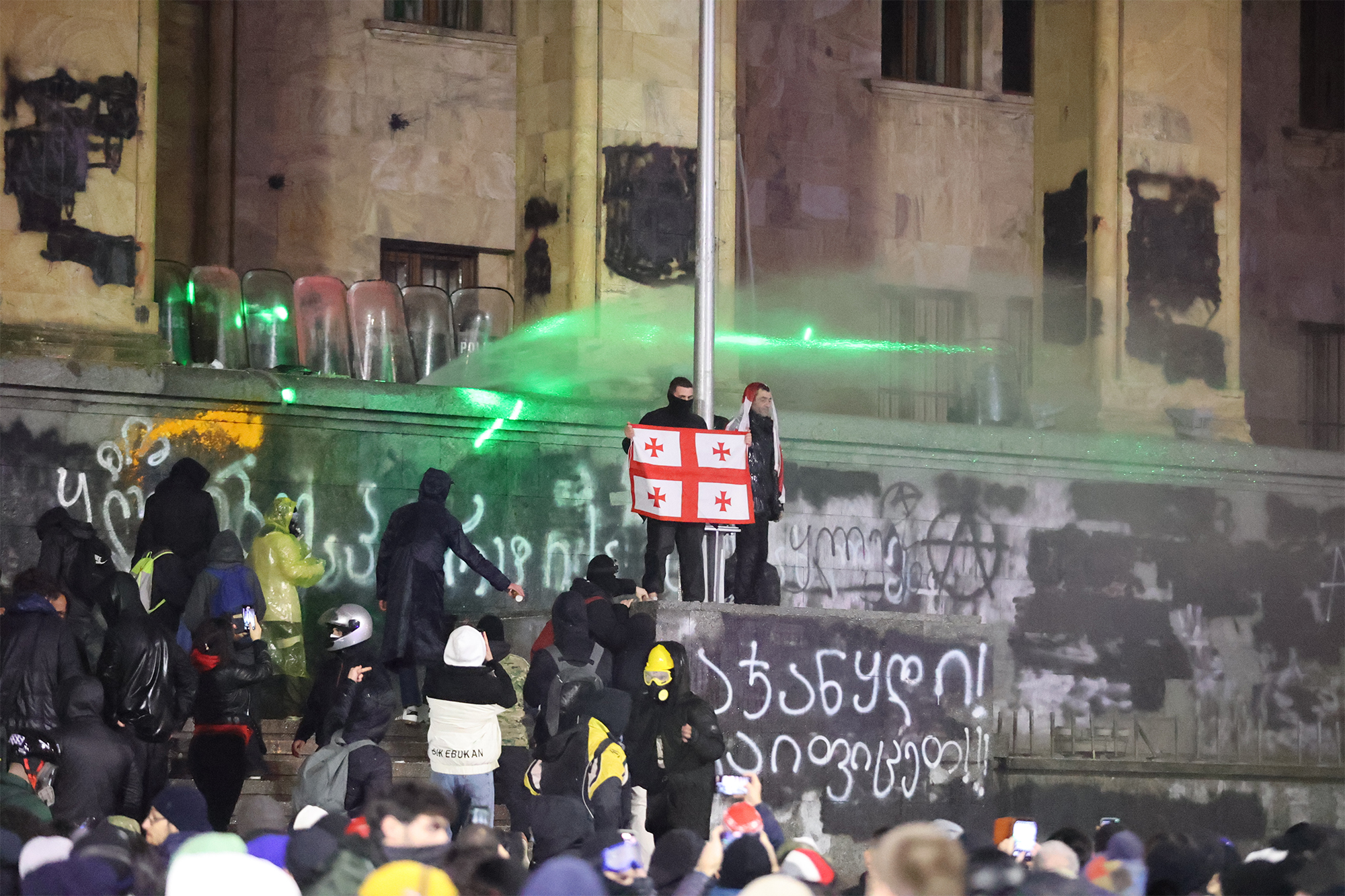
On why the West is losing to Russia and other authoritarian states the struggle for influence in the world, the failure of the “de-escalation policy” and the general degradation of the democratic system – read in the column of RBC-Ukraine deputy editor-in-chief Milan Lelic.
Denouement civil war in Syria – or its intermediate stage – took place virtually without US participation. America, if it mattered at all, was exclusively secondary. In the past, it would have been extremely difficult to imagine that such major world deals, especially in the Middle East, would be done without the active involvement of the Americans. It was not possible to do without them completely – for example, the US became a mediator in negotiations for a ceasefire between the Kurds and the pro-Turkish opposition in the north of the country – but this is a more local, not a strategic issue.
Of course, now the states are going through a special period of transition – Joe Biden is almost no longer president, and Donald Trump is not yet president. But even before this, the role of the United States as the “No. 1 power” or “global policeman” is more a stereotype than a reflection of the real state. Moreover, both Democrats and Republicans contributed to this.
The White House’s decision to supply Ukraine with modern weapons or to impose sectoral sanctions against Russia can be seen by members of the Biden team as the height of courage and determination. But from the outside (not to mention Ukraine), Washington’s policy in recent years, and especially after the full-scale Russian invasion of Ukraine, looks rather sluggish and unconvincing. This also applies to the analytical preparation of decisions and their implementation in practice.
The disastrous US withdrawal from Afghanistan in 2021 was based on data from the world’s nominally most powerful intelligence and analysis services, which predicted that the government in Kabul would be able to hold back the advancing Taliban for a long time. In fact, it collapsed even faster than Assad in Syria.
 Evacuation from Taliban-occupied Afghanistan (Photo: Getty Images)
Evacuation from Taliban-occupied Afghanistan (Photo: Getty Images)
With Ukraine, it was a reverse miscalculation – Kiev not only surrendered in 24/48/72 hours, but has held back the supposed “second army of the world” for almost three years (and such an assessment of the attacker’s forces turned out to be another miscalculation) .
The US, with all its intelligence officers and analysts, failed to adapt to the new reality. Until now, at the end of 2024, the word “escalation” is constantly heard from across the sea, which has long caused only irony among Ukrainians living in this escalation.
The American “de-escalator team” approach to world affairs has completely failed in practice, but they are unwilling or unable to admit it. It is enough to compare the general situation in the world several years ago and now – when almost everywhere is on fire. And where it does not blaze, it can blaze at any time.
Comical attempts to “avoid escalation” stem from the West’s general, strategic misunderstanding of the core of the main troublemaker of world peace – Russia. Attempts to measure an attacking country with the same ruler used to measure Germany, France or Poland are doomed to failure. The basis of the Western decision-making process in all transactions with other parties – the desire for win-win situations – basically does not work with Russia.
 One of the main supporters of the “de-escalation” policy in the White House is Jake Sullivan (Photo: Getty Images)
One of the main supporters of the “de-escalation” policy in the White House is Jake Sullivan (Photo: Getty Images)
The whole world order in Moscow is traditionally seen either as a zero-sum game (“for us to win, you must lose”) or generally as a lose-lose strategy (“even if we lose a lot, but you will lose twice as much”) They only western countries where this is understood is EU/NATO’s eastern flank, which once experienced this approach itself.
Added to this is a lack of understanding that external aggression and the seizure of new spheres of influence are the very basis of Russian policy at any time, and not a temporary Putin aberration. Consequently, all the wretched hopes of a “normal Russia” with which the West views the few and fragmented Russian oppositions it has itself protected are also a deliberately losing strategy. In turn, it feeds on a permanent fear of the possible collapse of today’s Russia, just as inappropriately as it was more than thirty years ago when the Soviet Union was collapsing.
Therefore, the West is still losing points in the global confrontation with autocratic or fundamentalist regimes, fortunately things have not yet come to a knockout. But it may come to this if the US does not learn to draw conclusions from its own mistakes. Meanwhile, they are not done, which is best seen in the example of Ukraine. All “de-escalation prevention” and some “red lines” have long since discredited themselves as concepts, but they continue to be persistently appealed to.
Instead of properly punching the aggressor autocrats in the teeth – the only language available to them – Washington and the Europeans looking back mostly try to continue playing “concession”. Israel, for example, understands well how anti-democratic systems actually work, unlike the EU-US. And without any particular ceremony, he is acting to ensure his own safety by force, which is what the world is seeing right now in post-Assad Syria.
Trump can be seen as someone who can potentially “kick autocrats in the teeth.” But for one thing, during his first term as president he didn’t show much in this capacity. In addition, it is noticeable that he treats “strong leaders”, whom Trump classifies as autocrats, with noticeably more sympathy than professional European-liberal bureaucrats.
 Future US President Donald Trump (photo: Getty Images)
Future US President Donald Trump (photo: Getty Images)
Second, Trump’s declared isolationist stance and focus on solving domestic American problems is in direct conflict with containing anti-democratic forces around the world. In the overseas media, this is even called the “end of the American century” – when the United States undoubtedly played a major role in world affairs. Of course, the US will not be able to completely isolate itself in its Western Hemisphere under Trump. This would not have been possible more than a hundred years ago, when such ideas were more popular, and since then the level of globalization has increased exponentially. And Trump himself described the circle of external enemies that he plans to fight (with his own methods, of course) – first of all China, secondly – Iran.
The general inability of the West to fight back against anti-democratic countries and trends also overlaps with the inherent characteristics of modern democracy: its bureaucratic complexity, vulnerability to manipulation of public opinion, the need to find consensus solutions, which is difficult, time-consuming and often impossible.
In addition, authoritarian leaders are deprived of the constant worry of democratic leaders – they don’t really have to think about how to get re-elected. Probably, even the Kremlin cannot completely and completely ignore the moods of its subjects, but its owner is absolutely sure that he will rule as long as he decides himself, and no “voters” will stop him in this. In democracies, the situation is fundamentally different where, as you know, politicians start thinking about the next election immediately after the end of the previous ones.
And if Putin can say to the Russians: “I need more missiles, so you will all eat less” and nobody, by and large, gives a damn, then the country’s UK-France-Germany leadership will have to explain at length (and often unsuccessfully) to their constituents, which is why an extra fraction of one percent of GDP should be allocated to defense, and not to the payment of any kind of benefits.
Anti-democratic states, such as Russia, have perfectly learned to exploit all these vulnerabilities, using the entire possible arsenal – not only propaganda, but also direct bribery of authorities and media in countries that are of direct interest to them, various economic instruments.
This is clearly illustrated by the example of Georgia, where there is currently a fierce struggle between the West and Russia. Despite the bloody history of relations, trade turnover between Tbilisi and Moscow has increased several times over the past decade. As in the case of Ukraine, the West is acting mainly reactively and with a noticeable delay in relation to Georgia. Although the current government’s apparent tilt towards Moscow has been noticeable for a long time, Europe and the US have not developed a clear countermeasure strategy.
 Protests in Georgia (Photo: Getty Images)
Protests in Georgia (Photo: Getty Images)
On the contrary, it can be called a relatively successful example of self-defense on the part of democracy recent events in Romania. After discovering a clear Russian hand in the electoral success of the right-wing anti-Western radical Kelin Georgescu, the country took an unprecedented step – it completely canceled the results of the first round of the presidential election. It is unclear how much of this decision is political logic and the Romanian establishment’s desire to remain in power, and how much is a sincere desire to protect the young Romanian democracy, but here the anti-Western pro-Russian vector suffered an unexpected defeat . For now.
This case generally goes against the established trend of recent years – according to many annual reports of Western analytical centers, there is less and less democracy around the world, and more and more authoritarianism.
Even in the West itself, with long-standing, if not centuries-old, democratic traditions, the party-state system is showing clear signs of ill health. For example, in the United States, which should serve as a model for everyone.
Radical factions are becoming increasingly dominant in both the Democratic and Republican parties. On the one hand, there is a leftist, completely focused on protecting the rights of all kinds of minorities, a pro-Palestinian and anti-capitalist public, on the other, fascist conspiracy theorists and fundamentalists who deeply despise the very essence of democracy. Therefore, one can understand the Americans who, after all, retained the remnants of common sense, who could not understand which of the two parties caused them less disgust and who they should vote for.
 Participant in the storming of the Capitol, far-right conspiracy theorist Jake Angeli (photo: Getty Images)
Participant in the storming of the Capitol, far-right conspiracy theorist Jake Angeli (photo: Getty Images)
The prospects for global democracy in this regard look quite alarming. But there are rays of hope. For example, the same Syria. It shows that even authoritarian regimes can be overwhelmed when they try to bite off more than they can chew. Especially if geopolitical ambitions stand on shaky economic foundations – and Russia’s GDP is more than twenty times smaller than the combined GDP of the EU and the US.
But to win a fight, sometimes it is not necessary to be stronger than your opponent, it is enough that the opponent himself believes in it. Therefore, if the West does not wake up soon, it may never wake up at all.
.




